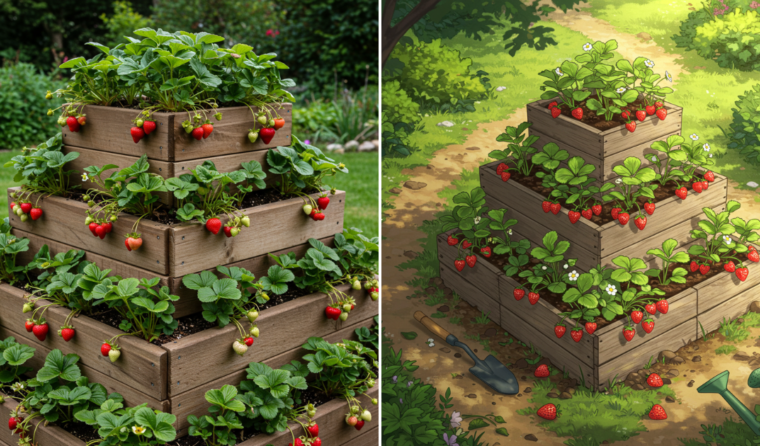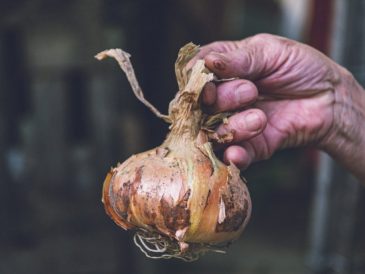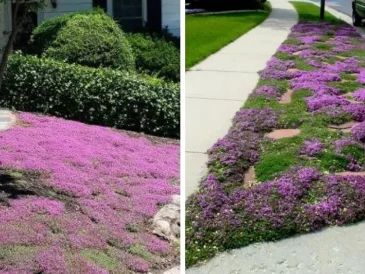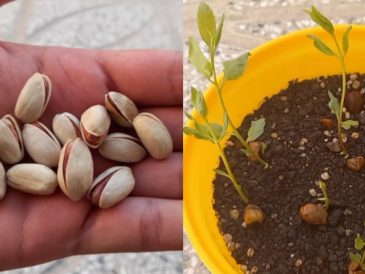Strawberries are not just delicious; they are also versatile, visually appealing, and easy to grow. However, limited garden space often makes growing an abundance of strawberries challenging. Enter the strawberry pyramid planter—a creative, space-efficient, and stunning solution to grow more strawberries in a compact area! In this guide, we’ll show you how to design and build your very own strawberry pyramid planter, step by step, while maximizing yield and aesthetics.
Why Build a Strawberry Pyramid Planter?
A strawberry pyramid planter offers several benefits:
- Space optimization: Perfect for small gardens or balconies, the vertical layers maximize planting area.
- Efficient watering: The tiered design helps distribute water evenly across plants.
- Pest reduction: Elevating plants reduces exposure to ground pests like slugs.
- Aesthetic appeal: These pyramids add visual charm to any garden space, creating a centerpiece of greenery and vibrant berries.
Step-by-Step Guide to Building a Strawberry Pyramid Planter
1. Planning the Design
Begin by deciding on the size and number of tiers for your pyramid. Consider:
- Space availability: Plan for a structure that fits comfortably in your garden.
- Number of plants: Estimate how many strawberry plants you’ll need for your desired yield.
- Materials: Choose durable materials such as untreated wood, metal, or stone for your planter.
A common three-tiered design can hold 20–30 strawberry plants and fits into a small area while remaining easy to manage.
2. Gathering Materials
Here’s a list of items you’ll need:
- Wooden planks or boards (dimensions depend on tier size)
- Screws or nails
- A saw and drill
- Measuring tape and level
- Landscape fabric or weed barrier
- Soil mix (nutrient-rich and well-draining)
- Strawberry seedlings or runners
3. Building the Pyramid
Follow these steps to construct your planter:
Step 1: Assemble the Base
- Cut wood planks to form a square base (e.g., 4×4 feet).
- Secure the planks together using screws or nails.
- Line the base with landscape fabric to prevent weeds and improve drainage.
Step 2: Create the Tiers
- Cut progressively smaller squares for the upper tiers (e.g., 3×3 feet for the second tier, 2×2 feet for the top tier).
- Attach each tier securely atop the previous one, ensuring proper alignment. Use a level to keep everything straight.
Step 3: Add Soil
- Fill each tier with a high-quality soil mix. Combine compost, topsoil, and sand for nutrient-rich and well-draining soil. Strawberries thrive in slightly acidic soil with a pH of 5.5–6.5.
Step 4: Plant Strawberries
- Position strawberry seedlings or runners around the edges of each tier, allowing them to cascade beautifully. Space plants 12–18 inches apart for healthy growth.
Tips for Maximizing Strawberry Yield
- Sunlight: Place your planter in a spot with 6–8 hours of daily sunlight, as strawberries need plenty of light to thrive.
- Watering: Strawberries require consistent moisture but avoid overwatering. Use a drip irrigation system for efficiency.
- Fertilizing: Apply a balanced fertilizer during the growing season. Avoid excessive nitrogen, which can lead to foliage growth instead of fruit.
- Mulching: Add a layer of straw or mulch around plants to retain moisture and suppress weeds.
Maintenance and Care
Regular Pruning:
- Remove dead leaves and runners to direct energy toward fruit production.
Pest Management:
- Protect plants from birds and pests by using netting or mesh.
- Monitor for diseases like powdery mildew and treat with organic solutions if necessary.
Seasonal Adjustments:
- In colder climates, insulate your pyramid planter during winter to protect plants from frost.
Why Strawberry Pyramid Planters Are a Game-Changer
Building a strawberry pyramid planter is not just practical; it’s transformative for small-space gardening. This ingenious structure combines functionality and beauty, allowing you to grow an abundance of strawberries while showcasing a stunning garden feature. Whether you have limited space or simply want a unique planting solution, a pyramid planter is your answer to growing more strawberries in less space.
Are you ready to take your strawberry-growing skills to the next level? With this guide, you’ll be enjoying fresh, juicy berries in no time!





